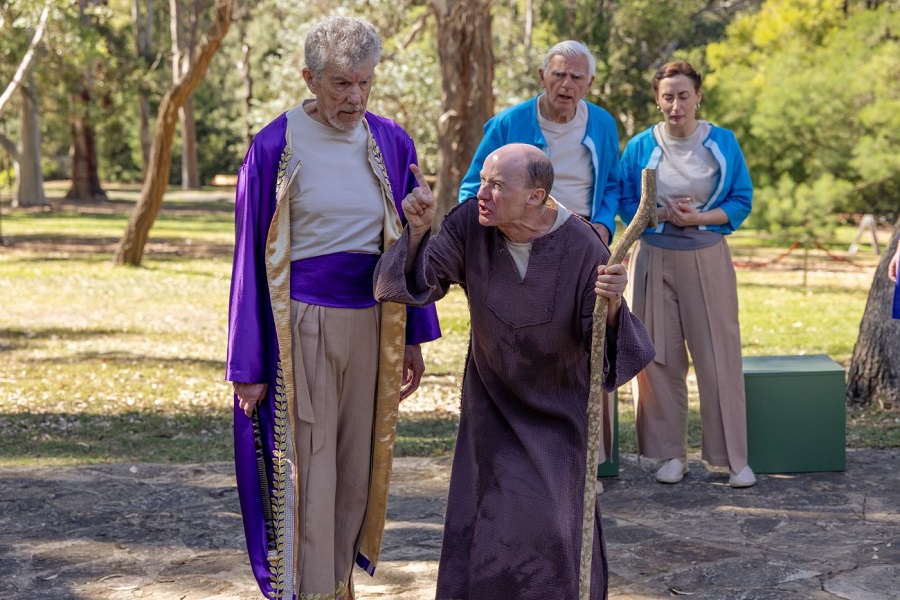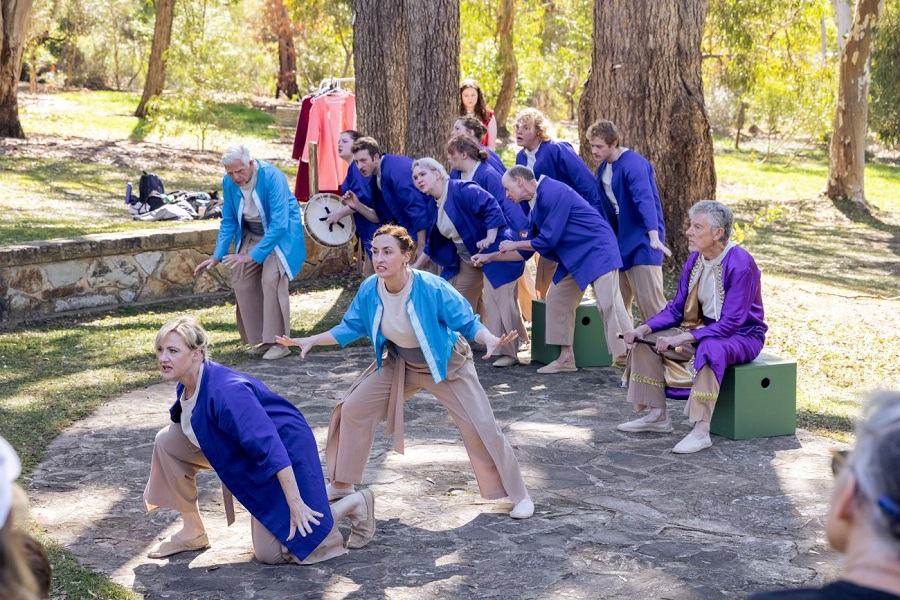Fresh as a daisy even though it was written around 440-2 BC, one of the world’s most famous plays is being staged outdoors at the Australian National Botanic Gardens over Easter, following a run-in period of schools’ shows.
Sophocles’s Antigone can be seen in the Burbidge Amphitheatre, presented by the Canberra group, Greek Theatre Now, the brainchild of Michael J Smith, who also gets to play the blind seer, Teiresias.
Staged by veteran Canberra director, Cate Clelland, working with drama teacher and WAAPA graduate, Lachlan Ruffy, it takes advantage of our almost spring-like weather – for the City Dionysia Festival in which it was first played was held in April or May, though in the northern hemisphere.
Many people have had a go at adapting this drama of integrity versus authority to their own needs. Jean Cocteau did an adaptation in 1922, Jean Anouilh’s 1944 Antigone played during the Nazi occupation of France, then after World War II, Bertolt Brecht ventured on an adaptation published as Antigonemodell 1948. Antigona Furiosa by Argentinian dramatist Griselda Gambaro commented on an era of government terrorism that led to the Dirty War.

That’s easy enough to do. The play, which has often been singled out for its Hegelian juxtaposition of two rights – in this case, the state versus the individual, is ripe for the picking.
You don’t go to a Greek tragedy expecting to be surprised by the ending – most people already know the story.
The first of Sophocles’ Theban plays (the others are Oedipus Rex, Oedipus at Colonus) it comes after the tragic story of Oedipus but chronologically, it is the last part, since by now Oedipus, Antigone’s father, has shuffled off this mortal coil, and the state of Thebes has been left in the hands of his two warring sons, Eteocles and Polyneices.
When the brothers dispatch each other, their uncle Creon assumes the crown and proceeds with a mop-up operation which includes throwing the carcass of Polyneices to the dogs as an example.
Flying in the face of both decency and Greek religious precepts, this causes the uncompromising Antigone (Ella Buckley) to take up the cudgels, with tragic consequences.

Antigone has been touted by the company as “the first female hero,” but ironically, she is not ultimately the tragic hero of this play, but rather Creon, who is left with the mess his limited understanding has created.
Special mention must be made of the chorus into which a group of dedicated Canberrans have thrown themselves enthusiastically, working with Ruffy as movement director to enter physically into the action.
They’re in – participants with strong opinions; they’re out – not-so-innocent bystanders.
You’ll just have to be there to see how it works, but best bring a cushion.
Sophocles’ Antigone, Burbidge Amphitheatre, Australian National Botanic Gardens, 2.30 pm, April 18 to 21.
Who can be trusted?
In a world of spin and confusion, there’s never been a more important time to support independent journalism in Canberra.
If you trust our work online and want to enforce the power of independent voices, I invite you to make a small contribution.
Every dollar of support is invested back into our journalism to help keep citynews.com.au strong and free.
Thank you,
Ian Meikle, editor






